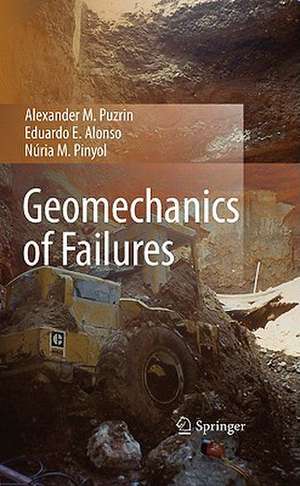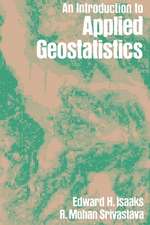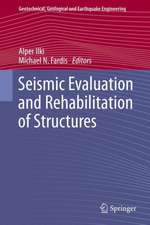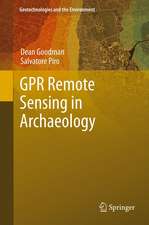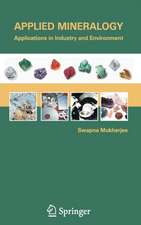Geomechanics of Failures
Autor Alexander M. Puzrin, Eduardo E. Alonso, Núria M. Pinyolen Limba Engleză Hardback – 17 iun 2010
| Toate formatele și edițiile | Preț | Express |
|---|---|---|
| Paperback (1) | 485.46 lei 6-8 săpt. | |
| SPRINGER NETHERLANDS – 12 noi 2014 | 485.46 lei 6-8 săpt. | |
| Hardback (1) | 473.16 lei 6-8 săpt. | |
| SPRINGER NETHERLANDS – 17 iun 2010 | 473.16 lei 6-8 săpt. |
Preț: 473.16 lei
Preț vechi: 556.66 lei
-15% Nou
Puncte Express: 710
Preț estimativ în valută:
90.54€ • 96.82$ • 75.49£
90.54€ • 96.82$ • 75.49£
Carte tipărită la comandă
Livrare economică 18 aprilie-02 mai
Preluare comenzi: 021 569.72.76
Specificații
ISBN-13: 9789048135301
ISBN-10: 9048135303
Pagini: 256
Ilustrații: VIII, 245 p.
Dimensiuni: 155 x 235 x 21 mm
Greutate: 0.48 kg
Ediția:2010
Editura: SPRINGER NETHERLANDS
Colecția Springer
Locul publicării:Dordrecht, Netherlands
ISBN-10: 9048135303
Pagini: 256
Ilustrații: VIII, 245 p.
Dimensiuni: 155 x 235 x 21 mm
Greutate: 0.48 kg
Ediția:2010
Editura: SPRINGER NETHERLANDS
Colecția Springer
Locul publicării:Dordrecht, Netherlands
Public țintă
Professional/practitionerCuprins
Settlements.- Interaction between Neighbouring Structures: Mexico City Metropolitan Cathedral, Mexico.- Unexpected Excessive Settlements: Kansai International Airport, Japan.- Leaning Instability: The Tower of Pisa, Italy.- Bearing Capacity.- Bearing Capacity Failure: Transcona Grain Elevator, Canada.- Caisson Failure Induced by Liquefaction: Barcelona Harbour, Spain.- Excavations.- Braced Excavation Collapse: Nicoll Highway, Singapore.- Tunnel Excavation Collapse: Borràs Square, Spain.- Tunnel Face Instability: Floresta Tunnels, Spain.
Recenzii
From the reviews:
“The main goal of this text is to illustrate how basic concepts in soil mechanics can be used as a ‘forensic’ tool in the investigation of geotechnical failures. … provide a detailed and step-by-step description of the hypothesis introduced and of the analysis performed. … Each chapter is self-contained and provides a review of soil mechanics principles and methods. The target audience is undergraduate and graduate students, faculty and practising professionals in the field of Civil and Geotechnical engineering.” (International Journal of Mining, Reclamation and Environment, Vol. 25 (1), March, 2011)
“The main goal of this text is to illustrate how basic concepts in soil mechanics can be used as a ‘forensic’ tool in the investigation of geotechnical failures. … provide a detailed and step-by-step description of the hypothesis introduced and of the analysis performed. … Each chapter is self-contained and provides a review of soil mechanics principles and methods. The target audience is undergraduate and graduate students, faculty and practising professionals in the field of Civil and Geotechnical engineering.” (International Journal of Mining, Reclamation and Environment, Vol. 25 (1), March, 2011)
Notă biografică
Alexander M. Puzrin, born in 1965, studied Structural Engineering at Moscow Institute of Civil Engineers (1982-1987) and Applied Mathematics at Moscow State University (1990). He received his Ph.D. in Geotechnical Engineering from the Technion - Israel Institute of Technology in 1997, where he joined the faculty. In 2002 he became a faculty at the Georgia Institute of Technology (USA). He has been Professor of Geotechnical Engineering at the ETH Zurich since 2004. Prof. Puzrin has been involved as an expert in geotechnical projects in Russia, Israel and Switzerland. His expertise lies in progressive and catastrophic failure and constitutive modeling of geomaterials. He is the author of more than 60 papers. Awards: Technion Excellence in Teaching Award in 2001; ASCE (Student Chapter) Outstanding Faculty Award in 2003; ICE Bishop Medal in 2004.
Eduardo E. Alonso, born in 1947, got his degree in Civil Engineeering (Ingeniero de Caminos, Canales y Puertos) in Madrid in June 1969. He got a PhD in Northwestern University in 1973. At present he is Professor of Geotechnical Engineering at the UPC in Barcelona. He is the author of more than 300 papers published in Proceedings of Conferences and learned journals. Professional activities include foundation problems, deep excavations, nuclear power plants, slope stability, breakwaters, earthdams, tunneling and underground waste disposal. Awards: Thomas Telford Medal (ICE) in 1994 and 2007; Crampton Prize (ICE) in 2006; J. Torán Prize in 1995; N. Monturiol medal in 2000; Second Coulomb lecturer in 2003 and Eleventh Buchanan Lecturer, Texas A&M in 2003; Tenth Sowers Lecturer, GeorgiaTech, Atlanta in 2005. He is member of the Royal Academy of Engineering of Spain since 1995 and member of the Royal Academy of Sciences and Art of Barcelona since 2007.
Núria M. Pinyol, born in 1978, got her degree in Civil Engineering (Ingeniero de Caminos, Canales y Puertos) in Barcelona in June 2004. At presentshe is a Researcher of the International Center for Numerical Methods in Engineering (CIMNE, Barcelona). She has worked on the development of constitutive models for bonded expansive soils and in the analysis and modeling of the geotechnical behaviour of earth and rockfill dams. One of her papers ("A review of Beliche dam") was awarded the Crampton Prize (ICE, UK) in 2006. Her main research interests are: behavior of unsaturated soils, expansive soils and rocks, hard soils and soft rocks, numerical analysis in Geomechanics, dams, slope stability and rapid slides.
Eduardo E. Alonso, born in 1947, got his degree in Civil Engineeering (Ingeniero de Caminos, Canales y Puertos) in Madrid in June 1969. He got a PhD in Northwestern University in 1973. At present he is Professor of Geotechnical Engineering at the UPC in Barcelona. He is the author of more than 300 papers published in Proceedings of Conferences and learned journals. Professional activities include foundation problems, deep excavations, nuclear power plants, slope stability, breakwaters, earthdams, tunneling and underground waste disposal. Awards: Thomas Telford Medal (ICE) in 1994 and 2007; Crampton Prize (ICE) in 2006; J. Torán Prize in 1995; N. Monturiol medal in 2000; Second Coulomb lecturer in 2003 and Eleventh Buchanan Lecturer, Texas A&M in 2003; Tenth Sowers Lecturer, GeorgiaTech, Atlanta in 2005. He is member of the Royal Academy of Engineering of Spain since 1995 and member of the Royal Academy of Sciences and Art of Barcelona since 2007.
Núria M. Pinyol, born in 1978, got her degree in Civil Engineering (Ingeniero de Caminos, Canales y Puertos) in Barcelona in June 2004. At presentshe is a Researcher of the International Center for Numerical Methods in Engineering (CIMNE, Barcelona). She has worked on the development of constitutive models for bonded expansive soils and in the analysis and modeling of the geotechnical behaviour of earth and rockfill dams. One of her papers ("A review of Beliche dam") was awarded the Crampton Prize (ICE, UK) in 2006. Her main research interests are: behavior of unsaturated soils, expansive soils and rocks, hard soils and soft rocks, numerical analysis in Geomechanics, dams, slope stability and rapid slides.
Textul de pe ultima copertă
It is not an easy task to fascinate a student with a standard course on Soil Mechanics and Geotechnical Engineering. If, however, the same material is presented as a tool to explore a natural or a man-made "disaster", both the motivation and the ability to absorb this material increase dramatically. The case studies in this book could help to build an introductory Forensic Geotechnical Engineering course, covering such basic topics as settlements, bearing capacity and excavations.
The failure cases considered in this book have something in common – they can be all reasonably well explained using so called "back-of-the-envelope" calculations, i.e., without sophisticated models requiring finite element analysis. These simple methods based on clear mechanical considerations are the endangered species of the computer dominated era, though sometimes they could prevent a disaster caused by a wrong application of computer models. In particular, the upper bound limit analysis has repeatedly proven itself as a powerful tool allowing for sufficiently accurate estimates of the failure loads and leaving a lot of room for creativity.
No one is exempt from making mistakes, but repeating well known mistakes reveals a gap in education. One of the objectives of this book is to attempt bridging this gap, at least partially. More failure cases covering a larger area of geotechnical problems are included into the companion book "Geomechanics of Failures: Advanced Topics" by the same authors.
The failure cases considered in this book have something in common – they can be all reasonably well explained using so called "back-of-the-envelope" calculations, i.e., without sophisticated models requiring finite element analysis. These simple methods based on clear mechanical considerations are the endangered species of the computer dominated era, though sometimes they could prevent a disaster caused by a wrong application of computer models. In particular, the upper bound limit analysis has repeatedly proven itself as a powerful tool allowing for sufficiently accurate estimates of the failure loads and leaving a lot of room for creativity.
No one is exempt from making mistakes, but repeating well known mistakes reveals a gap in education. One of the objectives of this book is to attempt bridging this gap, at least partially. More failure cases covering a larger area of geotechnical problems are included into the companion book "Geomechanics of Failures: Advanced Topics" by the same authors.
Caracteristici
Ideal textbook combining well-known appealing cases with problems and solutions in a structural approach Includes supplementary material: sn.pub/extras
